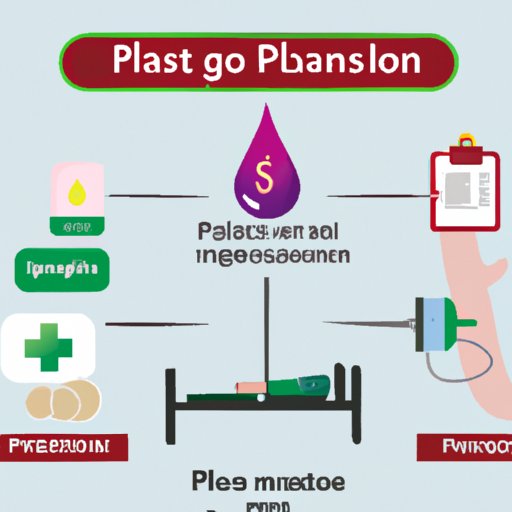
Introduction
Plasma donation is becoming more and more popular among those who want to earn some extra cash while also helping save lives. Blood plasma, a yellowish liquid that contains various proteins, can be used to treat a range of medical conditions. And plasma donation centers pay donors for their contribution. However, some people still wonder if donating plasma is worth their time and effort. In this article, we will explore the truth about plasma donation for pay and discuss its pros and cons, tactics to maximize your earnings and whether it is ethical or not.
The Truth About Donating Plasma: Does It Really Pay Off?
Yes, donating plasma can pay off, though the amount of compensation is relatively low compared to other income sources. The average payment for a donation is between $20 to $50, depending on the center where you donate. However, some facilities offer special promotions and bonuses to incentivize consistent donations. To get the most out of plasma donation, consider choosing a center with competitive rates and bonuses, taking advantage of referral programs and promoting special promotions for additional fees.
The Pros and Cons of Donating Plasma for Money
As with any monetary compensation opportunity, there are advantages and disadvantages to donating plasma. Some advantages of plasma donation include it being a supplementary income, a chance to save lives, and that the frequency of donations can be higher compared to donating blood for compensation. On the other hand, potential risks and time commitment are the primary disadvantages of plasma donation. Donors must go through an extensive screening process and are prone to some side effects, such as bruising around the needle insertion, dehydration, and dizziness after the process. And the time commitment can vary from location to location, but generally takes around 1 to 2 hours per donation.
How Plasma Donation Works (And How You Get Paid for It)
Donating plasma typically involves the following steps: registration, initial health screening, physical examination, and plasma donation. During the actual donation, your plasma is separated from your blood using a process called plasmapheresis, and then the blood is returned to your body. At most plasma donation centers, you can receive compensation in the form of cash, reloadable debit cards, or credit on your account, which can be withdrawn in different ways.
The Ethics of Plasma Donation: Is It Right to Get Paid for Giving?
There has been a long-standing debate about whether or not it is ethical to pay people to donate plasma or blood. Some people believe that this practice enriches only the donor and the plasma business but does not directly benefit those who need it. Critics also say that the practice targets low-income individuals who cannot afford to turn down the compensation even if there are potential risks involved. On the other hand, supporters say that this option provides donors with a means to make money and save lives at the same time. It is important to note that donating plasma is a personal decision, and it is up to the donor to decide if the extra income is worth the potential risks.
Getting the Most Out of Plasma Donation: Tips for Maximizing Your Earnings
If you intend to make a steady income stream from plasma donation, here are some things you can do to maximize your yield. Research your donation center and look for those with higher compensation rates or promotional programs. Follow a healthy diet and drink lots of fluids before your donation to minimize dehydration and low protein levels. Be consistent in your donations and avoid long periods of gaps in between. And encourage friends and family to join and benefit from referral bonuses or gift cards.
Conclusion
Donating plasma can be a personal choice, and it can help save lives while earning some extra cash. It is essential, however, to weigh the pros and cons and make informed decisions about the timing and frequency of your donations. Do research on the compensation rates, donor bonuses, and referral programs currently available. Ultimately, your choice should depend on your comfort level with the risks involved and your financial situation.




